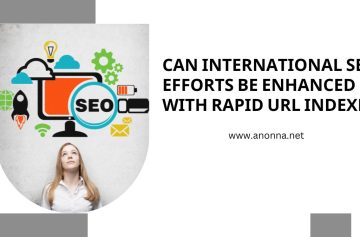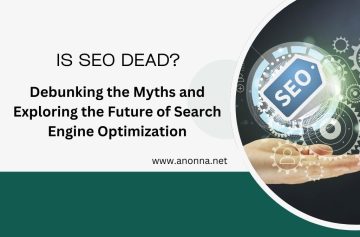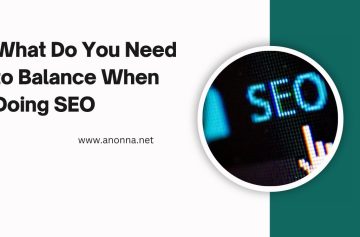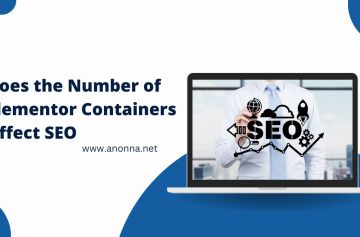
Should My SEO Blog Target Beginners or My Target Audience? A Guide to Choosing the Right Content Strategy
Let us know, Should I Target Beginners or My Target Audience in My SEO Blog? But building your own SEO blog is the best way to bring in organic traffic, authority, and trust in your niche. However, perhaps the most important decision every blogger needs to make is what audience to target. Is it better to focus on beginners, who are only just starting to learn SEO? Or spend time creating content for industry professionals and advanced users, who want expert insight on a topic?
It is a very common dilemma since both low-hanging fruit content and high-funnel content have their advantages and tradeoffs. Targeting your blog to beginners will reach many readers, generates traffic, but no engagement or conversions. While niche audience targeting can establish authority, it may narrow the audience and require more detailed content.
This article seeks to help bloggers decide on the best strategy for their SEO by weighing the benefits and drawbacks of each audience type. Be it – a business, digital marketer, or a content creator, knowing your audience will help you create the best-performing and most valuable content strategy, which meets your objectives but improves the search ranking.
What Is the Purpose of Your SEO Blog?
You also need to ensure you know about the goal of your SEO blog before you decide to either target beginners or a specific niche audience. Determining what you want to achieve with your blog and who your readers are will guide the direction of your content strategy, keyword choices, and the nature of your SEO внедрение which will determine your search ranking, engagement, and success.
Content on SEO Blogs and Its Significance in Digital Marketing
An SEO blog is one of the winning strategies in digital marketing because it helps any type of business or even individuals establish their authority, credibility, and online presence. With the content being the main factor for organic traffic growth whether running a personal blog, business website, or an agency.
The Role of SEO Blogs in Business Growth
✅ Boosts Organic Traffic: Properly optimized posts gain visitors by the search engine, lowering the dependency on paid marketing.
✅ Establishes Industry Authority: Giving away valuable insights makes you the industry leader.
✅ Increases Interaction and Reliability: Good content makes users interact, share, and return.
✅ Drives Lead Generation: A blog can help convert readers into customers with actionable tips, lead magnets, and call-to-actions (CTAs).
How Targeted Content Impacted SEO Rankings and Conversions
The effectiveness of your content depends on its target audience and search intent alignment.
- High-volume, informational queries tend to reward beginner content, but may not convert as well.
- Advanced, niche-specific pieces work better for a smaller target audience with a degree of higher engagement and potential for conversion.
Identifying Your Primary Goal
Your content tone, depth, keyword selection, and blog in general will be largely dependent on the types of audience you targeted.
Would You Rather Educate Newbies or Engage Experts?
📌 If you target beginners:
- You will have to simplify, educate, and iterate your content over and over again.
- You’ll cover the fundamentals of SEO such as “What is SEO?” or “How to Rank on Google.”
- Keywords will have high search volume but will be very competitive.
- Engagement can be lower, because group members are more at the learning stage, as opposed to the purchasing stage.
📌 If your aim is a niche audience (businesses, industry experts):
- You will lean toward technical, data, and strategic.
- Sessions will delve into the world of advanced SEO techniques, detailed case studies, and the latest algorithm changes.
- While their search volume will be lower, they’ll have a higher possibility of conversion.
- They are more likely to read, share, and become leads, clients, or customers.
How Audience Determines Style of Content, Keywords, and Ranking Strategy
| Content Type | Beginner-Focused SEO Blog | Niche/Advanced SEO Blog |
|---|---|---|
| Content Style | Simplified, educational, step-by-step guides | Technical, in-depth, research-based analysis |
| Content Strategy | High-volume, broad keywords | Lower-volume, intent-driven keywords |
| Ranking Strategy | Competing with general SEO websites | Targeting a specialized audience with specific needs |
| Conversion Potential | Lower (users are still learning) | Higher (users are decision-makers) |
Key Takeaway:
🚀 If you are looking to grow big traffic and generate widespread interest, entry-level content may be the way to go.
👴🏼 If your goal is lead generation or capitalizing on authority, it is better to look for your niche audience.
In the next section, we’ll discuss the advantages and disadvantages of each of these approaches and how to align one with your long-term SEO efforts.
Targeting Beginners vs. Targeting the Correct Audience
Selecting an effective audience for your SEO blog directly affects your content strategy, keywords, and ultimately, the success of your SEO efforts. There are pros and cons to both beginner-oriented content and niche-specific content. By understanding these differences, you can align your blog with your goals—be it to generate high traffic or bring in highly engaged, conversion-ready users.
Advantages and Disadvantages of Targeting Beginners
Most SEO blogs focus on beginner content because it pulls in a wide audience and has high search volume potential. This strategy, however, has its pros and cons.
✅ Pros:
- Bigger Audience Range — More individuals are looking for beginner-friendly topics, thus more visitors or traffic to your website.
- Keywords with Higher Search Volume – for Example: “What is SEO?” and “How to do keyword research” amount to thousands of searches per month.
- More Straightforward Keyword Ranking – Although competitive, beginner-related keywords are easier to rank for than advanced, niche-specific terms.
- Good for Brand Awareness – Because your blog becomes a go-to resource for new learners, you can work on shares and visibility.
❌ Cons:
- Lower Conversion Rates – All beginners are in the learning stage, they may not be interested in buying your services/products.
- Lack of Industry Credibility – Little to no industry credibility as experienced professionals may view a beginner-focused blogging website with skepticism.
- Higher Competition – General topics that cater to various aspects compile competition from larger SEO sites such as Moz, Ahrefs, and HubSpot.
- Limited Depth of Content – Beginner content is often simple and well-covered, so it’s more difficult to differentiate.
📌 Best for: Bloggers who want to quickly grow traffic, monetize via ads or affiliate marketing, and build a broad knowledge base around SEO.
The Pros and Cons of Targeting Your Niche Audience
Writing high-value content for a specific niche attracts an active readership of engaged users to convert to customers, subscribers, or business leads. But it also presents challenges of its own.
✅ Pros:
- Higher Engagement and Retention – Specialized readers will spend more time on your site, sign up, and are more likely to return.
- Improved Lead Generation – Reaching out to decision-makers and professionals in your industry allows for greater conversion potential.
- Definitive Brand Positioning – Your blog becomes the go-to resource in the SEO industry with trustworthy content, making it easier to earn partnerships, backlinks, and speaking opportunities.
- Reduced Competition for Specific Keywords – Seminal articles with higher specificity like “Technical SEO for Big Websites” or “How Google’s NLP Impacts SERPs” receive significantly lower search volume but higher value traffic.
❌ Cons:
- Less Search Traffic – Advanced SEO topics receive fewer searches than general SEO areas.
- Tougher Competition for Niche Keywords – Competing with giants like Ahrefs, Semrush, and Google.
- More Time to Establish Authority – Requires consistent quality content, case studies, and tech knowledge.
📌 Best for: SEO pros, agencies, or brands looking to attract high-quality leads while establishing industry authority and creating conversions for a business.
SEO and Content Plan for the Respective Audience
It would be best if you planned your SEO and content strategy in accordance with the audience you are working with. Here’s how they differ in what you choose for keywords, how deep you go with the content, and how much you consider search intent.
Phase 1: Picking Your Keywords: Easy to Target Vs. Advanced Niche Keywords
Beginner-Focused Keywords
Examples: “What is SEO?”, “How to rank a website”, “SEO checklist for beginners”
Difficulty: High but high competition.
Because search intent is mostly informational, the expertise criteria could be something like this:
Niche-Specific Keywords
Examples: “Best practices of schema markup for e-commerce SEO”, “Entity-based SEO strategy in 2025”
Search Volume: Less of it but high intent users who are likely to purchase.
Search Intent: Informational (Can be transactional/commercial if the user is looking for in-depth expertise)
Strategy Tip:
Pursue high-volume beginner keywords for traffic growth. If you only need conversions and authority, opt for the niche-targeted keywords that have lower competition but higher intent.
Content Tone and Depth: 101s vs. In-Depth Industry Insights
Writing for Beginners Style
- Toning: Educational and step-by-step.
- Post types: Micro guides, tutorials, listicles, how-tos.
- Example Title: “How To Do Keywords Research For SEO (Step By Step Guide)”
Style of Content Specialization
- Style: Expert, analytical, and technical.
- Format: Case studies, research-backed insights, and strategic deep dives.
- Example Title: “SEO in 2025: Google MUM Algorithm and Its Impact”
Strategy Tip:
Keep things simple if your new blog is for beginners. Write data-driven, expert-level insights that establish you as a thought leader for a niche audience.
Understanding Search Intent: The Difference Between Informational & Transactional Content
SEO Blog for Beginners (Informational Intent)
- Content is able to teach and bring in diverse audiences.
- SEO blog topics are basically question-and-answer FAQs.
- Example: “What is Technical SEO?” (Informational)
Niche SEO Blog (Commercial/Transactional Intent)
- Content targets professionals seeking easement.
- Blog topics solve specific industry problems and advanced tactics.
- Example: “How to Build a Scalable Internal Linking Strategy for Large Websites” (Transactional / Commercial)
Strategy Tip:
Produce content for beginners if you want traffic. If you desire leads and conversions, create transactional and problem-solving content aimed at your niche audience.
Conclusion: Which is Better for Your SEO Blog?
Target Beginners If:
- You can target keywords that have a high search volume to bring a bigger audience.
- You want to teach new users, increase advertising revenue, or develop brand recognition.
- You plan to create how-to guides, SEO basics, and beginner tutorials.
You Should Target Your Niche Audience If:
- You expect more engagement, conversions, and industry authority.
- You want to bring in businesses, decision-makers, or experts.
- You want to create content with technical, research-based, or case-study-based writing.
Best Approach? A Balanced Content Strategy
For many SEO blogs, a hybrid approach works best. You can create beginner-friendly content themed with higher-level manpower insight to serve both audiences.
- Dwell on a wider audience with an important specialized segment.
- Transform newcomers into lifetime followers and paying clients.
- Get the No.1 spot for both high-volume and high-intent keywords.
How to Find Out What Works Best for You and Your Blog
When deciding whether to target new people or go niche, there’s no single answer. The ideal approach will be linked to your existing audience, business goals, and content strategy. With some data analysis of your current traffic and reasonable content structuring, you will gain insight into your decision-making.
Step 1: Analyze Your Existing Audience and Traffic
Digging into your blog’s visitors’ data will help determine whether your content should suit beginners or aim for a niche audience.
Google Analytics and Search Console
Google Analytics – Trace Your Audience Reports
- Check demographics & interests reports to see readers’ age, gender, and interests.
- Review behavior flow to understand how visitors navigate your site.
- Check engagement metrics (bounce rate, session duration, pages per session) to determine if your content resonates with your audience.
Google Search Console – Search Performance
- Check the queries report for the keywords bringing you traffic. Do they cater to beginners or advanced users?
- Evaluate click-through rates (CTR). Are users clicking on your results but bouncing quickly?
- Explore the top pages report to identify what content works best for your audience.
The Meaning of This Data
- If the majority of traffic is coming from simple SEO search queries (e.g., “What is SEO?”), most of your audience is probably new.
- If your top queries are technical SEO topics or strategy-based searches, you’re attracting a more advanced audience.
Surveys and Audience Research: How To Fine-Tweak Your Content Strategy
If you are unsure about what your audience needs, just ask them directly:
Surveys & Polls
Use tools such as Google Forms, Typeform, or social media polls to ask your readers about their level of experience.
Example Questions:
- “How well do you know SEO?”
- “What SEO content do you value most?”
- “What is your greatest challenge in SEO?”
Email & Social Media Engagement
- Review comments, messages, and feedback from your community.
- Monitor what posts or discussions get the most interaction and shares.
Important Note:
- If your audience consists mostly of new students, push out educational-style content.
- If they’re more experienced, offer detailed insights and niche strategies.
How to Balance Beginner and More Niche Content
Instead of opting for one method only, the most successful SEO blogs take a balanced content strategy. This allows you to open up to a wide audience while still targeting experienced professionals who will convert.
Including a Content Mix: Guides for Beginners and Experts
Beginning-Level Materials (High-Volume, Instructional)
- Examples:
- “SEO 101: What Is SEO and How Does It Work?”
- “[Step-by-Step Guide] How to Optimize Your Website for Search Engines”
- “Best Free SEO Tools for Beginners – Top 10”
Niche/Advanced Content (Subject Matter Expert, High Converting)
- Examples:
- “In 2025: The Search Revolution of Google’s MUM Algorithm”
- “Advanced Link Building Strategies: 5 Ways to Expand Your SEO Game Plan”
- “Entity-Based SEO: The New Era of Semantic Search Optimization”
Hybrid Approach Example:
A post like “SEO for Beginners: A Step-by-Step Guide” can link to a more in-depth piece, “Technical SEO Optimization: Best Practices for Larger Websites.”
Content Silos as Your Framework for Separating Beginner and Advanced Topics
Content Silo Structure for an SEO Blog
| Category | Beginner-Focused Content | Advanced/Niche Content |
|---|---|---|
| SEO Basics | “What is SEO?” | “How to Create a Scalable Internal Linking Strategy” |
| Keyword Research | “How to Find SEO Keywords” | “Entity-Based SEO: Impact of NLP on Keyword Relevance” |
| Technical SEO | “How to Submit a Sitemap to Google” | “Core Web Vitals Optimization: Advanced Tactics” |
| Link Building | “What Is a Backlink and Why Is It Important?” | “Advanced Link Building: Broken Link Building & Digital PR” |
Strategy Tip:
- Link beginner guides to advanced insights through internal linking.
- Guide readers on their next steps (e.g., “Start here with our SEO Beginner Guide before diving into advanced strategies!”).
Final Thoughts: What is the Best Approach for Your SEO Blog?
Try, analyze your targeted traffic, who is visiting your blog—beginners or professionals?
Use Surveys and Engagement Metrics to Conduct Audience Research to Optimize Your Content Strategy
🧲 Combine beginner and niche content to drive broad and high-value traffic
📌 Use content silos to divide up topics, so a new reader can easily navigate to the right area of your blog for their experience stage.
🚀 The Takeaway: If you can manage it, covering both aspects will provide two different sources of traffic, more engagement, and ultimately more conversions. With a strategy—based on audience research—you can ensure that your SEO blog serves the appropriate content in front of the right people at the opportunity.
Strategies To Optimize Your SEO Blog For The Right Audience
After you’ve figured out whether your blog needs to cater to beginners, to a more niche audience, or both, it’s time to optimize your SEO strategy. Selecting high-quality keywords, improving audience engagement, and maximizing conversions according to your target audience requirements are the keys to success here.
Determining the Right Keywords and Topics
Choosing the best keywords will help you write content targeted for the audience you want to reach and that matches search intent. Keyword research, whether targeting beginners or industry professionals, should always be guided by data that is user behavior-oriented.
Tools for Keyword Research and Audience-Based Insights
✅ Ahrefs & SEMrush
- Titles (e.g., “What is SEO?”) with high-volume, beginner-friendly keywords.
- Pick low competition, high intent niche keywords (e.g., “Entity-Based SEO Strategies”).
- Competitor keyword gap analysis for content opportunities.
✅ Google Keyword Planner
- The one that tells you the difficulty and search volume of the keywords.
- Know the regional differences and the demand of your audience.
✅ Google Search Console
- Check out existing queries to know how people find your content.
- Make good use of low CTR but high impression keywords.
Keyword Example that Is Beginner-Oriented
- Main Keyword: “SEO basics for beginners” (high volume, general audience).
- Search Intent: Informational — users are learning, not purchasing.
Keyword Example for Niche Audiences
- Main Keyword: “How to optimize for Google’s NLP search” (low volume, high intent).
- Search Intent: Commercial/Transactional—users are more likely to convert.
🔹 Key Takeaway:
- Target beginner search terms for traffic generation and awareness.
- Focus on niche, long-tail keywords to convert the audience.
Increased Engagement and Conversion for End-Users
SEO success isn’t merely in traffic—it’s traffic that converts and optimizes users into readers or paying customers. Some effective strategies are:
Encourage Readers to Go from Novice to Pro Using Internal Linking
How it Works:
📌 Internal linking guides readers further down into your blog, resulting in higher engagement. 📌 A beginner post should reference more advanced guides to help guide users along the way. 📌 For example: “What is SEO?” must refer to “Technical SEO Best Practices.”
Best Practices:
✅ Use descriptive anchor text for the following topic. ✅ Make sure links are recommended only in context and that they are organic. ✅ A well-curated reading path keeps users on site longer.
🔹 Why This Works:
- By being exposed to novices for longer periods, they learn about advanced topics slowly.
- Enhances dwell time and reduces bounce rate, boosting SEO ranking.
How to Use Lead Magnets and Email Marketing to Keep Audience
Why It’s Important:
- Perfectly tailored emails convert guests into regular readers.
- This is part of a 3-step process known as a Lead magnet, sign up, download, enroll.
Lead Magnet Ideas:
- Beginner Audience: Free SEO checklist or step-by-step guide for beginners.
- For your niche: Exclusive case studies, advanced whitepapers, and in-depth SEO research reports.
Email Marketing Tips:
✅ Segment to share beginners vs professionals content. ✅ Set up an email autoresponder with SEO lessons explained in incremental steps. ✅ Provide CTAs that lead readers toward deeper engagement (e.g., “Download now our Advanced SEO Guide”).
🔹 Why This Works:
- Keeps your audience engaged and nurtured over time.
- Improves the chances of getting repeat visitors and customers.
Promoting Engagement, Conversation, and Community
Why Community Matters:
📌 An active blog with user discussions is a signal to search engines that you are engaged. 📌 To increase dwell time and interactivity of content, encourage questions. 📌 Creates a loyal base of readers to share your content far and wide.
Ways to Encourage Interaction:
✅ Finish posts with a question (e.g., “What SEO hurdles do you experience?”). ✅ Keep the conversation going by replying to comments. ✅ Utilize a Facebook group, LinkedIn community, or a Discord server to continue conversations.
📌 Example of a Beginner Blog Community:
- Conducting live Q&As or beginner-focused webinars on SEO.
📌 Niche Blog Community Story:
- An invite-only SEO mastermind group for professionals.
🔹 Why This Works:
- If users are engaged, they are more likely to share, return to your site, and comment!
- Establishes authority and trust, which leads to your blog’s long-term SEO success.
Conclusion: Set Your SEO Blog Up for Long-Term Success
📌 SEO is not only about rankings but about showing content to the audience that should see it. 📌 By selecting the right keywords and topics, you can make sure your content is visible to the proper users. 📌 Engagement techniques (think: internal linking, lead magnets, and community building) make your visitors stick around and become fans.
Conclusion
Whether you should cater to beginners or a niche audience with your SEO blog depends on a number of factors, including your business goals, audience, and content strategy. Each method has its own strengths:
📌 Beginner content attracts a bigger audience/higher search volume, which is good for branding and traffic but might lead to lower engagement and conversions. 📌 Industry professionals and decision-makers flock to niche-specific content, resulting in greater engagement and conversion rates, but it requires more technical knowledge and has a smaller audience.
A Balanced Approach for Long-Term SEO Success
🚀 Plan a content distribution strategy that addresses both novice and niche professional audiences:
✅ Broad traffic and authority with beginner guides. ✅ In-depth insights establish credibility and boost conversions. ✅ Beginner and expert content are linked through internal links and content siloing for easy navigation.
💡 Key Tip: The best SEO strategy aligns with your business goals while adapting to audience needs and search trends. Keep testing, tweaking, and optimizing—your success in SEO depends on it! 🚀 You can read more article from here.








Add comment